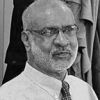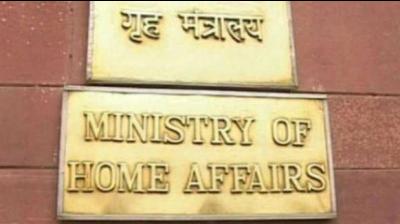Mohan Guruswamy | Maoism or Modism: The perils of personality cult
Drawing parallels between Mao Zedong's legacy and contemporary political dynamics in India.
The outpouring of outrage over the arrest of “Urban Maoists” on patently spurious charges reminds me about what that greatdarling of the radical chic — Chairman Mao Zedong — thought of chattering guerrillas. We might be confused, but Mao was clear what he thought of them. He wrote: “A revolution is not a dinner party,or writing an essay, or painting a picture, or doing embroidery; it cannot be so refined, so leisurely and gentle, so temperate, kind, courteous, restrained and magnanimous. A revolution is an insurrection, an act of violence by which one class overthrows another.” On the other hand. the Naxalite cadres battling it out in the jungles of Chhattisgarh’s Bastar region are the real Maoists, even if they are as misguided as their inspiration.
It was not Mao who really transformed China, but it was Deng Xiaoping. Mao had set back China’s development with costly experiments. It is estimated that the Great Leap Forward alone cost 20-45 million lives and qualifies him to be the greatest mass murderer in history. It was not that like Hitler or Stalin, Mao deliberately condemned people to mass slaughter.
But it was entirely due to his harebrained policies that would not have been implemented but for the adulatory and mass worship hysteria that he whipped up.
The clamour to praise Prime Minister Narendra Modi by BJP and RSS spokespersons and top leaders despite the glaring evidence of the failure of demonetisation and managing the Covid-19 pandemic is reminiscent of what happened in China during the Great Leap Forward years of 1959-62. In an effort to win favour with their superiors and avoid being purged, each layer in the party hierarchy exaggerated the amount of grain produced under them. Based upon the fabricated success, party cadres were ordered to requisition a disproportionately high amount of that fictitious harvest for state use, primarily for use in the cities and urban areas, but also for export. The result, compounded in some areas by drought and in others by floods, was that rural peasants were left with little food for themselves and many millions starved to death in the largest famine known as the Great Chinese Famine.
The inherent danger of false adulation is the personality cult. Mao had become an emperor who could even threaten to make war on the Communist Party, as he did in 1962 when the party leadership criticised the disastrous consequences of the so-called Great Leap Forward. In 1959, when the legendary Marshal Peng Dehuai, who was at that time China’s defence minister, criticised it in a private letter to Mao, he was ruthlessly purged, and imprisoned till he died in 1974. The former Chairman Liu Shaoqi fared worse. Even as head of the state he was dragged out of his residence in Zhongnanhai by a mob of Red Guards, beaten and stripped as the PLA garrison troops watched. Liu also died in prison.
Mao’s terror was no less arbitrary and capricious than Stalin's. Mao was an avid student of Chinese history and would often say: “We have to learn from the past to serve the present.” That morality had no place in Mao’s politics was evident in that the emperors he admired most were the most ruthless and cruel of the long line of tyrants who ruled China.
The ruler who Mao admired the most was the Emperor Qin Shihuangdi (221-206 BC), who founded the imperial China that lasted nearly 2,000 years. He too vastly expanded China by absorbing smaller nations. He constructed roads, introduced weights and measures, and built the Great Wall that still stands.
He also killed and persecuted thousands, if not millions. The Chinese also considered him a cruel tyrant because he killed Confucian scholars and burned classical books. But Mao considered all these minor aberrations and argued that the good outweighed the bad. This was exactly Mao’s attitude when the Communist Party of China (CPC) told him that at least ten million had died between 1959-61 in the famines that resulted after the People’s Communes were forcibly formed.
But we get an extraordinary glimpse of the kind of person Mao was from The Private Life of Chairman Mao, by his long-time personal physician, Dr Zhisui Li, who was in Mao’s inner circle till he died in 1976. Li has written a unique historical and political biography. It is an astonishing story of human weakness and pettiness, as well of great political intrigue in the Chairman’s court. He tells all about Mao’s voracious sexual appetite and Daoist beliefs in the mystical healing power of sex, his life of indolent luxury and the deep paranoia that afflicted him and periodically manifested with devastating consequences, not only to those around him but to the Chinese nation as well.
Li also tells of the imperial grandeur and lavish lifestyle of the rulers living in the secure Zhongnanhai compound in Beijing, when the Chinese people were starving and living in the most abject poverty. He tells about how Zhang Yufeng, the last of Mao’s many mistresses, acquired so much power that even Premier Zhou Enlai, who died in 1976, had to wait outside her room when he wanted to see Mao.
There is a relationship between absolute power and the behaviour of leaders seeking a part of it. The more centralised a system is, the greater the dictatorial tendencies allowing even small people wield to great power. We get to see this in India.
The great lesson of public administration is that it is the nature of the regime that determines the outcome. It is possibly because of this that China's level of income inequality is about the same as India’s, in that the top one per cent account for more than 40 per cent of the wealth.
No nation can wait endlessly while the rulers are making hay when the sons and sons-in-law shine. It must be made to listen to the clamour of the people and meet their minimal expectations. To coerce it to good behaviour is an inalienable right. But to do this in the name of Chairman Mao is to demonstrate ignorance of history and barrenness of ideology, and only beget more of the same.



















